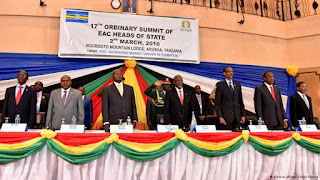The Somali question in the Ethiopian empire
 |
| Photo:Aljazeeranews.com |
Woodrow Wilson, the father who first coined the quintessential right of
nations, the right to self-determination, famously stated: "No people must
be forced under sovereignty under which it does not wish to live."
If one consciously observes Wilson’s grounding words of what later became
the universal right that has been enshrined in the Declaration of the United
Nations, it becomes a sunlight that the will of the people is the
requirement to exercise the right and the former president had been granting
the right to sovereignty to those who want to be sovereign. In that sense,
the right to self-determination doesn’t apply to those forcefully occupied
and still remain in occupation. Decolonization is their remedy and that is
exactly what case of the Somalis under Ethiopia proves to be and sturdily
demands.
Decolonization of nations had not been in the political literature before
Europe had colonized nations. The concept is the aftermath of the European
imperialism. In the case of Africa, it’s the redress that the partitioned
Africans demanded. That’s why they say states in Africa was birthed by
colonial wombs. However, Europeans weren’t the only ones who partitioned
Africa. Ethiopia was a member of the colonial crusades.
At the dawn of the scramble, Menelik, the builder of the Ethiopian empire,
vowed “if powers at distance came forward to partition Africa, I don’t want
to be an indifferent spectator,” then expanded massively by overrunning the
medieval soldiers of his neighbor African nations in the Horn, confiscating
their land and enslaving their people. Thus, as “a participant in the
‘scramble’ Ethiopia doubled its territory and population,” in the words of
John Markakis. The Somali Ogaden/Somali Galbeed is one of the victims of
such an expedition and is still in the hands of the aggressor.
Just like any other colonial project, subjugate has been the guideline of
the aggressor. Following the principle of Fetha Nagast (law of the kings),
the intent was clear: if the city or the land to conquer its inhabitants
offer “ peace and open their gates, the men who are there shall become
subjects and give you tribute, but if they refuse the terms of peace and
offer battle, go forward to assault and oppress them,” the law degreed.
Strictly obeying the Fetha Nagast law, Abyssinians, builders of Ethiopia,
obliterated indigenous African nations and reduced their inhabitants to
slaves. They imposed a system called “gabbar-neftegna” which gave the land
and resources to the gunmen, the conquering soldiers, and reduced the
natives into slaves. The Wolamo proverbs of “Menelik gave the land to the
Amahara and other people to the birds,” summarizes the economic blights
which the citizens of the formerly independent African nations had
suffered.
Obedient to Frantz Fanon’s misery findings in the colonial world, inside
the ‘neftenga-gabbar system’, the effect was consequential. One was rich
because he/she was an Abyssinian, and one was poor and slave because he/she
was a citizen of a conquered nation.
It was only after when the danger of the struggle of the occupied nations
had made the ‘neftegna-gabbar’ system obsolete and the privileged race felt
threatened that the sons and daughters of the dominating race turned against
their parents to abolish the system before things completely decimate.
The acts of the offspring of the ‘neftegna’ veterans were an effort to
prevent the “nouveau rich taking the chance of becoming poor,” to borrow the
words of Albert Memmi. They declared the sacrosanct of the colonial empire
they had inherited and mistakenly asserted that feudalism has no association
with colonialism. “Ergo Ethiopia could not have been feudal and colonist at
the same time,” they argued while “regarded center hegemony as the
cornerstone of the project” of the state they had envisioned in the words of
John Markakis.
The post-feudal states the young generation has implemented proved the case
further. Neither the socialist state of the Derge nor the ‘federal
multicultural’ state of TPLF/EPRDF has relinquished the illegitimately
assumed exclusive ‘right’ of the Abyssinians to dominate and exploit all
other races. Imposing the burden to obsolete the unjust systems on that
occupied nations.
 Burdened the task of obsoleting the so far immortal unjust systems of
Abyssinians, Somali Galbeedis have been fighting long wars of liberations to
decolonize their nation. Their struggle ranges from May 1900 when Sayid
Mohammed A. Hassan with 6000 Daraweesh men attacked the ‘neftegna’ garrisons
in Jijiga to the now struggle led by ONLF.
Burdened the task of obsoleting the so far immortal unjust systems of
Abyssinians, Somali Galbeedis have been fighting long wars of liberations to
decolonize their nation. Their struggle ranges from May 1900 when Sayid
Mohammed A. Hassan with 6000 Daraweesh men attacked the ‘neftegna’ garrisons
in Jijiga to the now struggle led by ONLF.
However, obedient to the past norms, when Somali struggle along with that
of other oppressed nations have debilitated the TPLF led unjust system which
only theoretically acknowledged the historical fact of the nation-based
oppression against the Somalis and their likes, the newly formulated
successor system led by the TPLF disciples drops the recently inserted
theoretical acknowledgment from the oppression mix to install new one. In
other words, the Abiy Ahmed led successor system is alienating the Somalis
and other occupied nations from their history of being colonized to accept
colonization. Will they accept?


